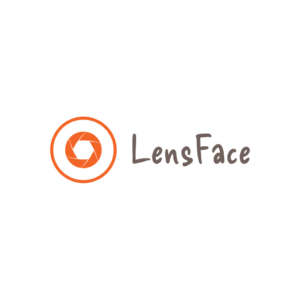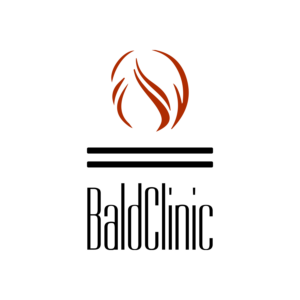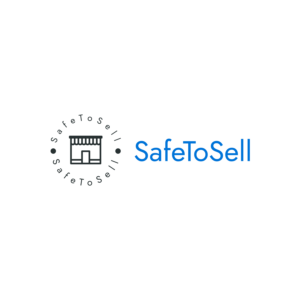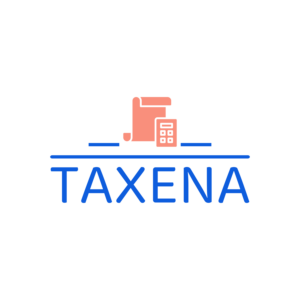Category Archives: Automotive
Domain Name Trends and Future Outlook: Exploring the latest trends
- Automotive, Beauty, Blogs, Business, E-commerce, Education, Entertainment, Finance, Food, Health, Home, Lifestyle, Non-profit, Parenting, Real Estate, Services, Sports, Technology, Travel, Wedding
- 25 Apr 2023
- user
Tips and best practices for selecting a domain name that is memorable, brandable, SEO-friendly, and aligned with business goals.
In today’s digital landscape, a domain name is more than just a website address; it’s a crucial element of a brand’s online identity. A well-chosen domain name can help establish a strong online presence, enhance branding, and contribute to search engine optimization (SEO) efforts. However, with millions of domain names already registered, choosing the perfect domain name requires careful consideration and strategy. In this article, we’ll delve into the art of choosing the perfect domain name, providing tips and best practices for selecting a domain name that aligns with your brand, resonates with your target audience, and helps you achieve your business goals.
New Domain Extensions
Traditionally, domain names have consisted of generic top-level domains (gTLDs) such as .com, .org, and .net, as well as country code top-level domains (ccTLDs) like .us, .uk, and .au. However, in recent years, there has been a surge in the availability of new domain extensions that offer more specific and targeted options for businesses and individuals.
For example, there are now industry-specific domain extensions such as .tech, .shop, .travel, and .food, which can help businesses establish a more relevant and memorable online presence. There are also location-specific domain extensions like .nyc, .london, and .berlin, which can be beneficial for local businesses targeting specific geographic markets. These new domain extensions provide businesses with more creative and meaningful options for their online branding.
In addition, there are also branded domain extensions, also known as branded TLDs, which are domain extensions that are owned by specific brands. For example, .google, .apple, and .microsoft are all branded TLDs that are owned by the respective companies. These branded domain extensions can enhance a brand’s online presence and strengthen its brand identity.
The future outlook for new domain extensions is promising, with more and more specialized options expected to become available. This can provide businesses with greater flexibility and customization in choosing domain names that align with their industry, location, or brand identity.
Emerging Technologies
Emerging technologies, such as blockchain and artificial intelligence (AI), are also expected to have an impact on the domain name industry in the future.
Blockchain technology has the potential to revolutionize domain name ownership and management. With blockchain, domain names can be decentralized and stored on a distributed ledger, eliminating the need for a centralized authority to manage domain registrations. This can increase transparency, security, and control for domain name owners, as well as enable new business models and opportunities.
AI-powered domain name generators are also emerging, using machine learning algorithms to generate unique and creative domain name suggestions. These generators can analyze various data points, such as keywords, trends, and user preferences, to generate domain name ideas that are relevant, catchy, and available. This can streamline the process of finding and registering domain names, and help businesses come up with innovative and brandable domain names.
Impact on Businesses and Branding
The latest domain name trends and emerging technologies can have a significant impact on businesses and branding strategies.
Firstly, new domain extensions can provide businesses with more options for their online branding. Having a domain name that aligns with the industry, location, or brand identity can help businesses establish a strong online presence, differentiate themselves from competitors, and improve brand recall. For example, a business in the food industry may benefit from a .food domain extension, while a local business in New York City may benefit from a .nyc domain extension. These specialized domain extensions can convey specific information about the business and its offerings, and help businesses target their desired audience more effectively.
Secondly, emerging technologies such as blockchain and AI-powered domain name generators can streamline the process of finding, registering, and managing domain names. This can save businesses time and effort in searching for available domain names, coming up with creative domain name ideas, and managing domain name ownership. It can also increase transparency, security, and control for domain name owners, as blockchain technology can provide a decentralized and tamper-proof system for domain name registration and management, while AI-powered domain name generators can offer innovative and relevant domain name suggestions.
Furthermore, the use of branded domain extensions can enhance a brand’s online presence and strengthen its brand identity. Having a branded TLD can convey trust, authority, and exclusivity, as well as reinforce a brand’s recognition and memorability. This can be particularly beneficial for large companies and established brands that want to showcase their uniqueness and innovation in the online space.
In addition, these domain name trends and technologies can also impact search engine optimization (SEO) strategies for businesses. Domain names that incorporate relevant keywords or location-specific extensions can help businesses improve their search engine rankings for specific search queries, as search engines often consider domain names as a factor in determining relevancy and credibility. Additionally, using AI-powered domain name generators can help businesses come up with domain names that are optimized for SEO, by considering search engine algorithms and user search behavior.
However, it’s important to note that while these domain name trends and technologies offer opportunities for businesses, there are also potential challenges and risks. With the introduction of new domain extensions, businesses need to carefully consider their branding and trademark strategies to ensure that their chosen domain names do not infringe on others’ intellectual property rights. The use of blockchain for domain name management also requires careful consideration of security measures and protocols to prevent unauthorized access or fraud. Similarly, AI-powered domain name generators should be used with caution, as the generated domain name suggestions may not always be appropriate or aligned with a business’s brand identity.
In conclusion, the domain name industry is constantly evolving with new trends and emerging technologies that can impact businesses and branding strategies. The availability of new domain extensions, the adoption of blockchain for domain name management, and the use of AI-powered domain name generators offer opportunities for businesses to establish a more relevant, memorable, and optimized online presence. However, it's important for businesses to carefully consider the legal, security, and branding implications of these trends and technologies, and to align their domain name strategies with their overall business goals and brand identity. By staying informed and adaptable to the evolving domain name landscape, businesses can leverage these trends and technologies to enhance their online branding and stay competitive in the digital world.
Domain Name Strategies: For Local Businesses
- Automotive, Beauty, Blogs, Business, E-commerce, Education, Entertainment, Finance, Food, Health, Home, Lifestyle, Non-profit, Parenting, Real Estate, Services, Sports, Technology, Travel, Wedding
- 25 Apr 2023
- user
Leveraging Local Audience with Location-Specific Domain Names
In today’s digital age, local businesses can greatly benefit from having a strong online presence to attract and engage their local audience. One crucial element of establishing an online presence is choosing the right domain name, as it can play a significant role in targeting local customers and optimizing search engine rankings. In this article, we will discuss domain name strategies for local businesses, including tips for incorporating location-specific keywords and extensions in domain names.
Include Location-Specific Keywords in Your Domain Name
One effective strategy for local businesses is to include location-specific keywords in their domain names. Location-specific keywords are words or phrases that relate to the geographical area where your business operates. For example, if you have a bakery in New York City, you could consider including keywords such as “NYC,” “New York,” “Big Apple,” or “Manhattan” in your domain name.
Including location-specific keywords in your domain name can have several benefits. First, it can help improve your website’s search engine optimization (SEO) efforts, as search engines often use keywords in domain names as a relevancy signal for local search results. This means that having location-specific keywords in your domain name can increase the likelihood of your website ranking higher in local search results when users search for products or services in your area.
Second, including location-specific keywords in your domain name can also make it clear to users that your business is local and relevant to their area. It can help establish a local identity and build trust with your target audience, as users are more likely to trust businesses that are associated with their local community. Additionally, having a domain name that includes location-specific keywords can make it easier for users to remember and type in your website address, which can lead to higher direct traffic and better user experience.
Consider Location-Specific Domain Name Extensions
Another effective strategy for local businesses is to consider using location-specific domain name extensions. Domain name extensions are the letters that come after the dot in a web address, such as .com, .org, or .net. In recent years, there has been an increase in the availability of location-specific domain name extensions, such as .nyc, .london, .sydney, or .berlin, which are associated with specific cities or regions.
Using a location-specific domain name extension can have several benefits for local businesses. First, it can help your website rank higher in local search results, as search engines may use domain name extensions as a relevancy signal for local searches. For example, if you have a business in London and you use a .london domain name extension, it can signal to search engines that your website is relevant to users in London, potentially leading to higher search rankings for local queries.
Second, using a location-specific domain name extension can also help establish your business as a local entity and build trust with your local audience. It can make it clear to users that your business is specifically targeted towards their area and that you understand the local market and community. This can help you connect with your local audience on a deeper level and differentiate yourself from competitors.
Keep Your Domain Name Short, Memorable, and Easy to Spell
When choosing a domain name for your local business, it’s essential to keep it short, memorable, and easy to spell. A domain name that is concise and easy to remember can help users recall and type in your website address accurately, leading to higher direct traffic and better user experience. Avoid using complex or lengthy domain names that can be easily misspelled or forgotten by users.
Avoid Hyphens and Numbers in Your Domain Name
It’s also important to avoid using hyphens and numbers in your domain name. These can make your domain name more complex and harder to remember. Additionally, hyphens and numbers can be easily misunderstood when verbally shared, leading to confusion and potential loss of traffic to your website.
Conduct Keyword Research
Before finalizing your domain name, it’s essential to conduct keyword research to identify relevant and high-performing keywords related to your local business and location. Keyword research can help you identify popular search terms that users in your area are using to search for products or services similar to yours. Incorporating these keywords in your domain name can help improve your website’s SEO efforts and increase its visibility in local search results.
Consider Branding and Consistency
When choosing a domain name for your local business, it’s also crucial to consider branding and consistency. Your domain name should align with your overall branding strategy, including your business name, logo, and other brand elements. Consistency in your branding across all online and offline channels, including your domain name, can help reinforce your brand identity and make it easier for users to recognize and remember your business.
Think Long-Term
When selecting a domain name for your local business, it’s important to think long-term and consider your business goals and growth plans. Your domain name is a significant part of your online identity and should be able to withstand the test of time. Avoid choosing a domain name that is too narrowly focused on your current location, as it may limit your business expansion plans in the future. Instead, opt for a domain name that is versatile and can accommodate potential changes in your business, such as expansion to other locations or diversification of services.
Protect Your Brand
Once you have chosen a domain name for your local business, it’s essential to take steps to protect your brand. Register your domain name with a reputable domain registrar and consider securing variations of your domain name, including common misspellings, to prevent others from registering similar domain names that could potentially divert traffic from your website. Additionally, consider trademarking your business name and domain name to further protect your brand from infringement.
In conclusion, domain name strategies for local businesses can play a crucial role in targeting local customers and optimizing search engine rankings. By incorporating location-specific keywords and extensions in your domain name, keeping it short, memorable, and easy to spell, conducting keyword research, considering branding and consistency, thinking long-term, and protecting your brand, you can create a strong online presence and connect with your local audience effectively. A well-thought-out domain name can be a valuable asset for your local business and contribute to its overall success in the digital world.
Premium Domain Names: Understanding the value and benefits of premium domain names
- Automotive, Beauty, Blogs, Business, E-commerce, Education, Entertainment, Finance, Food, Health, Home, Lifestyle, Non-profit, Parenting, Real Estate, Services, Sports, Technology, Travel, Wedding
- 25 Apr 2023
- user
Unlocking the Value and Benefits for Your Brand
In today’s digital landscape, where online presence is crucial for businesses, having a premium domain name can make all the difference. A premium domain name is a web address that is short, memorable, and typically includes popular keywords or phrases that are relevant to a particular industry or niche. These domain names are considered valuable due to their potential for higher branding, visibility, and search engine optimization (SEO) advantages. In this article, we will delve into the world of premium domain names, understanding their value, and exploring the benefits they can offer to businesses.
What are Premium Domain Names?
Premium domain names are domain names that are generally shorter, catchier, and more memorable than regular domain names. They often consist of popular keywords or phrases that are commonly used in a particular industry or niche. These domain names are typically available for purchase from domain name registrars at a higher price compared to regular domain names.
The value of a premium domain name is subjective and can vary depending on several factors such as the demand for the keywords or phrases included in the domain name, the length and memorability of the domain name, and the extension (.com, .net, .org, etc.) of the domain name. Premium domain names can range from a few hundred dollars to millions of dollars, with some of the most valuable premium domain names selling for record-breaking prices.
Benefits of Premium Domain Names
Higher Branding Potential: A premium domain name can significantly impact the branding of a business. A shorter, memorable, and keyword-rich domain name can help create a strong brand image in the minds of customers. It can convey the essence of the business or its unique selling proposition (USP) and make it easier for customers to recall and recognize the brand. A premium domain name can differentiate a business from its competitors, establish credibility, and create a professional online presence.
Increased Visibility: Premium domain names can enhance the visibility of a business online. Search engines often give preference to domain names that contain relevant keywords when ranking websites in search results. A premium domain name that includes popular keywords or phrases related to a business can have a higher chance of appearing in search results and attracting organic traffic. This increased visibility can lead to more website visitors, potential customers, and higher chances of conversion.
SEO Advantages: Premium domain names can offer SEO advantages. As mentioned earlier, including relevant keywords in a domain name can help with search engine optimization. Premium domain names that consist of popular keywords or phrases can give a business a head start in terms of SEO, as they can potentially rank higher in search results for those keywords. However, it’s important to note that a premium domain name alone is not a guarantee of high search rankings, as SEO involves multiple factors such as content quality, website structure, and backlinks.
Better User Experience: Premium domain names can also contribute to a better user experience. A shorter and more memorable domain name can be easier to type, spell, and remember for users. It can reduce the chances of users mistyping the domain name or getting confused with similar domain names. A premium domain name that aligns with the business name, industry, or niche can provide a clear indication of what users can expect from the website, leading to a positive user experience.
Investment Potential: Premium domain names can also have investment potential. Premium domain names can appreciate in value over time, making them a potential asset for businesses or investors. With the growing demand for online presence and increasing competition for premium domain names, their value can increase, and they can be sold or leased for a higher price in the future. Investing in a premium domain name can be seen as a long-term strategy to secure a valuable digital asset for a business.
More Benefits
In addition to the benefits mentioned above, premium domain names can also provide businesses with a competitive edge. In today’s competitive online landscape, having a premium domain name can give your business an advantage over others. A premium domain name that is memorable, relevant, and easy to remember can help your business stand out from the crowd and leave a lasting impression on potential customers. It can also convey a sense of professionalism and trustworthiness, which can be crucial in building customer confidence and loyalty.
Furthermore, premium domain names can also support your marketing and advertising efforts. A domain name that includes popular keywords or phrases related to your industry or niche can help improve the effectiveness of your online marketing campaigns. It can enhance your search engine marketing (SEM) strategies, such as pay-per-click (PPC) advertising, by improving the quality score of your ads and increasing the click-through rates (CTRs). This can result in better campaign performance, higher conversion rates, and ultimately, a better return on investment (ROI) for your marketing efforts.
Another benefit of premium domain names is that they can provide businesses with flexibility and scalability. A premium domain name can be a valuable asset that can grow with your business. It can allow you to expand your product or service offerings, target new markets, or rebrand your business without having to change your domain name. This can save you the hassle and costs associated with rebranding or repositioning your business online, and help you maintain your online presence and SEO efforts.
Moreover, premium domain names can also be used strategically for domain name branding. Some premium domain names are highly brandable, even if they do not necessarily contain popular keywords or phrases. They can be unique, catchy, and memorable, making them ideal for building a brand identity. A premium domain name that resonates with your target audience and represents your brand’s values, personality, or unique proposition can help you establish a strong brand image and differentiate yourself from competitors.
It’s also worth mentioning that premium domain names can have a significant impact on type-in traffic. Type-in traffic refers to the users who directly type a domain name into their browser’s address bar without using a search engine. A premium domain name that is easy to remember, spell, and type can attract type-in traffic, which can result in additional website visitors and potential customers.
In conclusion, premium domain names offer a range of benefits for businesses, including higher branding potential, increased visibility, SEO advantages, better user experience, investment potential, competitive edge, marketing support, flexibility, scalability, and domain name branding opportunities. While they may come with a higher price tag, their potential advantages can make them a worthwhile investment for businesses looking to establish a strong online presence, differentiate themselves from competitors, and achieve success in the digital world. Careful consideration and research should be undertaken when choosing a premium domain name to ensure that it aligns with your business goals, target audience, and long-term strategies. With the right premium domain name, your business can unlock the value and reap the benefits of a strong online presence in today's digital landscape.
Domain Name SEO Best Practices: Tips and best practices
- Automotive, Beauty, Blogs, Business, E-commerce, Education, Entertainment, Finance, Food, Health, Home, Lifestyle, Non-profit, Parenting, Real Estate, Services, Sports, Technology, Travel, Wedding
- 25 Apr 2023
- user
Tips and best practices for selecting a domain name that is memorable, brandable, SEO-friendly, and aligned with business goals.
In today’s digital landscape, a domain name is more than just a website address; it’s a crucial element of a brand’s online identity. A well-chosen domain name can help establish a strong online presence, enhance branding, and contribute to search engine optimization (SEO) efforts. However, with millions of domain names already registered, choosing the perfect domain name requires careful consideration and strategy. In this article, we’ll delve into the art of choosing the perfect domain name, providing tips and best practices for selecting a domain name that aligns with your brand, resonates with your target audience, and helps you achieve your business goals.
Keep it Memorable and Brandable
A memorable and brandable domain name is one that is easy to remember, pronounce, and spell. It should reflect your brand’s identity, values, and messaging. Avoid long, complex, or generic domain names that are hard to remember or easily confused with other similar domain names. Instead, aim for a short, catchy, and unique domain name that stands out from the competition and leaves a lasting impression on your audience. Consider using keywords that are relevant to your brand or industry, or create a brandable name that is distinctive and memorable.
For example, if your business is a bakery specializing in custom cakes, a domain name like “DeliciousCustomCakes.com” would be more memorable and brandable than a generic domain name like “BakeryCakesOnline.com”. It not only reflects the brand name but also communicates the unique selling proposition (custom cakes) of the business.
Consider SEO Factors
While not as critical as it used to be, domain names can still impact SEO efforts. Including relevant keywords in your domain name can help improve your website’s search engine ranking for those keywords. However, it’s important to strike a balance between incorporating keywords and maintaining a brandable domain name. Avoid keyword stuffing or using exact match domain names that may come across as spammy or low-quality.
For example, if your business is a digital marketing agency specializing in SEO services, a domain name like “SEOExperts.com” might seem too generic and may not stand out among the competition. Instead, a domain name like “DigitalMarketingGurus.com” could be a better option, as it incorporates relevant keywords (digital marketing, gurus) while still being brandable and memorable.
Check Availability and Trademarks
Before settling on a domain name, checking its availability and potential trademark conflicts is crucial. Conduct a thorough search to ensure that the domain name you’re considering is not already registered by someone else. You can use domain registrars or domain search tools to check the availability of domain names. It’s also important to check for any trademark conflicts to avoid potential legal issues in the future. Trademark conflicts can arise if the domain name you’re considering is similar to an existing trademark, which can result in legal disputes and financial repercussions.
For example, if your business is a digital marketing agency specializing in SEO services, a domain name like “SEOExperts.com” might seem too generic and may not stand out among the competition. Instead, a domain name like “DigitalMarketingGurus.com” could be a better option, as it incorporates relevant keywords (digital marketing, gurus) while still being brandable and memorable.
Consider Your Target Audience
When choosing a domain name, it’s important to consider your target audience. Think about the demographics, interests, and preferences of your target audience, and choose a domain name that resonates with them. A domain name that speaks directly to your target audience can help establish an emotional connection, build trust, and increase the chances of them remembering and visiting your website.
For example, if your target audience is young and tech-savvy, a domain name like “TechNinjas.com” could be appealing, while a more formal or corporate audience may prefer a domain name like “TechConsultingExperts.com”.
Avoid Hyphens and Numbers
Hyphens and numbers can make a domain name more complicated and harder to remember. It’s best to avoid using hyphens or numbers in your domain name, as they can be easily misunderstood or forgotten by users. Hyphens can also create confusion when communicating your domain name verbally, as it may not be clear whether the hyphen should be included or omitted. Similarly, numbers can be easily confused with their spelled-out counterparts or may require additional explanation when shared verbally.
For example, a domain name like “Best-Web-Design.com” may be confusing for users, as they may not know whether to include the hyphens or not. Similarly, a domain name like “Tech4U.com” may require additional explanation when shared verbally, as users may not know whether to type “four” or “4” in the domain name.
Think Long-term
When choosing a domain name, think long-term and consider your brand’s future growth and expansion. Avoid domain names that may limit your business’s potential to expand into other markets or offer new products or services. Choose a domain name that is flexible and adaptable to accommodate any future changes in your business.
For example, if you’re a local bakery with plans to expand nationally or internationally in the future, a domain name like “LocalBakeryNY.com” may limit your expansion opportunities. Instead, a more versatile domain name like “SweetTreats.com” would allow for broader brand positioning and future growth.
Research Competitors
Researching your competitors’ domain names can provide insights and inspiration for choosing your own domain name. Analyze the domain names of your competitors to identify any common themes or trends, and use that information to come up with a unique and differentiated domain name for your brand. Avoid choosing a domain name that is too similar or easily confused with a competitor’s domain name, as it may result in lost traffic and confusion among users.
Consider Domain Extensions
Domain extensions, also known as top-level domains (TLDs), are the suffixes that come after the domain name, such as .com, .org, .net, etc. While .com is the most popular and widely recognized domain extension, there are numerous other options available, including industry-specific extensions (.tech, .design, .store, etc.) or country-specific extensions (.co.uk, .fr, .au, etc.). Consider the nature of your business, target audience, and branding strategy when choosing a domain extension.
For example, if you’re a design agency, a domain name like “YourAgency.design” could be more relevant and memorable than “YourAgency.com”. Similarly, if your business is local and targets a specific country, using a country-specific domain extension like “.co.uk” (for the UK) or “.fr” (for France) could help establish local credibility and appeal to your target audience.
In conclusion, choosing the perfect domain name is an important step in building a successful online presence for your brand. It requires careful consideration, research, and strategic thinking to ensure that your domain name aligns with your brand, resonates with your target audience, and helps you achieve your business goals. By following the tips and best practices outlined in this article, you can make an informed decision and choose a domain name that sets your brand up for success in the digital world.
Domain Name Legal Considerations: Best Practices for Protecting Your Domain Name Assets
- Automotive, Beauty, Blogs, Business, E-commerce, Education, Entertainment, Finance, Food, Health, Home, Lifestyle, Non-profit, Parenting, Real Estate, Services, Sports, Technology, Travel, Wedding
- 25 Apr 2023
- user
Understanding Trademark Infringement, Domain Disputes, and Best Practices for Protecting Your Domain Name Assets
When it comes to registering and managing domain names, there are important legal considerations that website owners and businesses need to be aware of. From trademark infringement to domain disputes, understanding the legal aspects of domain name registration is crucial to protecting your online assets. In this article, we will explore the legal considerations involved in domain name registration and provide best practices for safeguarding your domain name assets.
Trademark Infringement
Trademark infringement occurs when a domain name is registered or used in a way that is likely to cause confusion with a registered trademark. This can result in legal disputes and potentially expensive consequences. It’s important to conduct thorough research to ensure that your chosen domain name does not infringe on someone else’s trademark. Here are some best practices to consider:
Conduct a trademark search: Before registering a domain name, conduct a comprehensive search to determine if it conflicts with any existing trademarks. Search the databases of the U.S. Patent and Trademark Office (USPTO) and other relevant trademark databases in your country.
Seek legal advice: If you have concerns about trademark infringement, it’s best to seek legal advice from a qualified intellectual property attorney. They can help you assess the risks and provide guidance on how to proceed.
Avoid deliberate similarity: Avoid intentionally registering a domain name that is similar to an existing trademark. This can be seen as bad faith and may result in legal repercussions.
Example: If the trademarked brand name is “XYZ Shoes,” registering a domain name like “XYZShoesSale.com” or “XYZShoesOutlet” could be considered trademark infringement.
Domain Disputes
Domain disputes can arise when multiple parties claim rights to the same domain name or when a domain name is registered or used in bad faith. Domain disputes are often resolved through legal proceedings or domain dispute resolution mechanisms, such as the Uniform Domain-Name Dispute-Resolution Policy (UDRP) or the World Intellectual Property Organization (WIPO) arbitration process. Here are some best practices for avoiding domain disputes:
Register relevant domain extensions: Register domain names with relevant extensions, such as .com, .org, .net, etc., to protect your brand and minimize the risk of domain disputes.
Register common misspellings: Register common misspellings or variations of your domain name to prevent others from registering similar domains and potentially causing confusion.
Use a reputable domain registrar: Choose a reputable domain registrar with clear terms and conditions to ensure that your domain registration is legitimate and protected.
Keep contact information updated: Keep your contact information with the domain registrar updated and accurate to ensure that you receive important notifications about your domain registration and any potential disputes.
Example: If your website is “ABCCompany.com,” consider also registering “ABCCompany.net,” “ABCCompany.org,” and common misspellings like “ABCCompany.com” to prevent others from registering similar domains and causing confusion.
Best Practices for Protecting Your Domain Name Assets
In addition to trademark infringement and domain disputes, there are other best practices to consider for protecting your domain name assets. These include:
Use strong passwords: Choose strong and unique passwords for your domain registrar and DNS provider accounts to prevent unauthorized access.
Enable two-factor authentication: Enable two-factor authentication (2FA) for your domain registrar and DNS provider accounts to add an extra layer of security.
Regularly monitor your domain name: Regularly check the WHOIS database and monitor your domain name to ensure that it is still registered in your name and that there are no unauthorized changes.
Renew domain name on time: Ensure that you renew your domain name registration on time to avoid accidental expiration and potential loss of ownership.
Keep records of domain registration: Keep copies of all registration records, including registration dates, renewal dates, and registration confirmation emails, for future reference and evidence in case of any disputes.
Register for longer terms: Consider registering your domain name for longer terms, such as multiple years, to ensure continuity and minimize the risk of losing your domain due to accidental expiration or oversight.
Purchase domain privacy protection: Consider purchasing domain privacy protection to keep your personal information, such as your name, address, and phone number, private and protected from potential misuse or abuse.
Be cautious of unsolicited offers: Be cautious of unsolicited offers or emails from unknown parties claiming to sell or transfer your domain name. These may be scams or attempts to gain unauthorized access to your domain name.
Example: Keeping thorough records of your domain name registration, renewal dates, and registration confirmation emails can help you provide evidence in case of any disputes or legal issues related to your domain name ownership.
In conclusion, understanding the legal aspects of domain name registration is crucial for protecting your online assets. Trademark infringement, domain disputes, and other legal considerations can have serious consequences for your domain name ownership and online presence. By following best practices such as conducting thorough trademark searches, registering relevant domain extensions, using strong passwords, enabling two-factor authentication, and keeping records of domain registration, you can safeguard your domain name assets and minimize the risk of legal disputes. It's always advisable to seek legal advice from a qualified attorney if you have any concerns or questions about the legal aspects of domain name registration and management. Remember, your domain name is an essential part of your online brand identity and should be protected accordingly. Taking the necessary steps to ensure legal compliance and protection of your domain name can contribute to the long-term success and credibility of your online presence.
Domain Name Registration and Management: A Step-by-Step Guide
- Finance, Automotive, Beauty, Blogs, Business, E-commerce, Education, Entertainment, Fashion, Food, Health, Home, Lifestyle, Non-profit, Parenting, Real Estate, Services, Sports, Technology, Travel, Wedding
- 25 Apr 2023
- user
A Step-by-Step Guide for SEO-friendly Domain Ownership
When it comes to establishing an online presence, registering and managing a domain name is a critical step. A domain name serves as the address for your website, making it accessible to users on the internet. It’s not only important for branding purposes but also plays a significant role in search engine optimization (SEO) by impacting website visibility, organic traffic, and overall online performance. In this article, we will provide a step-by-step guide on how to register a domain name, set up DNS, manage domain renewals, transfers, and other important considerations for domain name ownership, all while keeping SEO in mind.
The first step in domain name registration is choosing the right domain name for your website. When selecting a domain name, consider the following SEO-friendly tips:
Keep it relevant: Choose a domain name that is relevant to your business, industry, or target audience. Including keywords related to your website’s content can help improve SEO by signaling to search engines what your website is about.
Example: If you have a website that sells organic skincare products, consider a domain name like organicskincare.com or naturalskincareproducts.com.
Keep it simple: Choose a domain name that is easy to spell, pronounce, and remember. Avoid using hyphens, numbers, or special characters that can confuse users and make it harder for search engines to understand.
Example: Avoid domain names like best-skin-care-products-123.com or skincare4u.com.
Keep it short: Short domain names are easier to remember and share. Avoid long and complex domain names that can be cumbersome for users and affect SEO negatively.
Example: Prefer a domain name like skincare.com over bestorganicnaturalskincareproducts.com.
Keep it unique: Choose a domain name that is distinctive and not easily confused with competitors. This can help create a strong online brand identity and improve SEO by reducing confusion and increasing brand recall.
Example: If there is a popular skincare brand called “GlowingSkin,” avoid registering a similar domain name like “Glowing-Skin” to prevent confusion.
Step 2: Registering a Domain Name
Once you have chosen a domain name, the next step is to register it with a domain registrar. Follow these steps to register a domain name:
Choose a reputable domain registrar: There are many domain registrars available, so choose a reputable and reliable one. Popular domain registrars include GoDaddy, Namecheap, and Google Domains.
Check domain name availability: Use the domain registrar’s search tool to check if your desired domain name is available. If it’s already taken, try different variations or consider using a different top-level domain (TLD), such as .com, .org, .net, or country-specific TLDs like .co.uk or .ca.
Complete registration process: Follow the registration process provided by the domain registrar, which typically involves providing personal and contact information, choosing a registration period (usually 1-10 years), and making payment for the registration fee.
Provide accurate contact information: It’s important to provide accurate and up-to-date contact information during registration, as this information is used for domain ownership verification and communication regarding domain renewals, transfers, and other important notifications.
Step 3: Setting up DNS
DNS (Domain Name System) is responsible for translating human-readable domain names into IP addresses that computers can understand. Proper DNS setup is crucial for website accessibility and SEO. Here’s how to set up DNS for your domain name:
Access DNS management settings: Log in to your domain registrar or DNS provider account and access the DNS management settings for your domain name.
Configure DNS records: DNS records are used to specify how the domain name should resolve to the website’s IP address. Create the necessary DNS records, such as A records for the website’s IP address, CNAME records for aliases or subdomains, and MX records for email server settings.
Choose a DNS provider: Most domain registrars offer DNS services, but you can also choose a separate DNS provider for more customization and control. Popular DNS providers include Cloudflare, Amazon Route 53, and Google Cloud DNS.
Example: If your website’s IP address is 123.45.67.89, you would create an A record with that IP address in the DNS settings.
Step 4: Managing Domain Renewals and Transfers
Domain name ownership requires regular management, including renewals and transfers. Here are some important considerations:
Set up auto-renewal: Enable auto-renewal with your domain registrar to avoid accidentally losing ownership of your domain due to expiration. Set up notifications to remind you of upcoming renewals.
Keep contact information updated: Ensure that your contact information with the domain registrar is accurate and up-to-date. This is crucial for domain ownership verification and receiving important notifications about domain renewals or transfers.
Transfer domains carefully: If you decide to transfer your domain to a different registrar, follow the transfer process provided by the new registrar carefully. Keep in mind that domain transfers may take several days to complete, and your website may experience downtime during the transfer process.
Example: If you want to transfer your domain from GoDaddy to Namecheap, follow the transfer instructions provided by Namecheap and ensure that you have obtained the necessary authorization codes from GoDaddy.
Protect domain privacy: Domain registrars offer domain privacy services to protect your personal contact information from being publicly displayed in the WHOIS database. Consider enabling domain privacy to prevent spam or unwanted contact.
Registering and managing a domain name is a crucial step in building an online presence and optimizing your website for SEO. By choosing a relevant, simple, short, and unique domain name, setting up DNS correctly, and managing domain renewals and transfers carefully, you can ensure that your website is accessible, visible, and search engine-friendly. Remember to keep your contact information updated and protect your domain privacy to maintain ownership and control over your domain name. Follow these steps, and you'll be on your way to establishing a strong online presence with an SEO-friendly domain name.
Domain Name Branding: Building a Strong Brand Identity
- Automotive, Beauty, Blogs, Business, E-commerce, Education, Entertainment, Fashion, Finance, Food, Health, Home, Lifestyle, Non-profit, Parenting, Real Estate, Services, Sports, Technology, Travel, Wedding
- 25 Apr 2023
- user
Building a Strong Brand Identity with Your Domain Name: A Guide to Choosing a Brand-Reflective Domain Name for Your Website
In today’s highly competitive online world, building a strong brand identity is crucial for the success of any business. Your brand represents your company’s values, messaging, and positioning, and it plays a significant role in shaping how your target audience perceives your business. One often overlooked but essential aspect of brand building is your domain name. Your domain name is the online address of your website and serves as the foundation for your online presence. In this article, we will explore the importance of domain name branding and provide tips on how to choose a domain name that reflects your brand values, messaging, and positioning, ultimately contributing to a strong brand identity.
Brand Consistency
Your domain name is an opportunity to reinforce your brand consistency across all touchpoints. A consistent brand identity helps build trust and recognition among your target audience. When your domain name reflects your brand values, messaging, and positioning, it creates a cohesive and unified brand image, leading to better brand recall and brand recognition.
Example: If your brand is all about sustainability and eco-friendly products, a domain name like “greenplanetproducts.com” or “sustainableliving.com” reflects your brand’s values and messaging, creating a consistent brand identity across your website, social media, and other marketing materials.
Brand Recall
A memorable domain name can significantly impact brand recall. When your domain name is easy to remember and aligns with your brand, it becomes a powerful marketing tool that users can recall and type directly into their browsers, resulting in repeat visits and increased brand exposure.
Example: A domain name like “beautybliss.com” for a beauty and cosmetics brand is memorable, catchy, and reflective of the brand’s messaging of providing a blissful beauty experience. Users are more likely to remember and revisit a website with such a memorable domain name.
Brand Positioning
Your domain name can convey your brand positioning and help you target your ideal audience. It can communicate the nature of your business, the industry you operate in, and the target market you serve. A domain name that reflects your brand positioning can attract the right audience and set the right expectations.
Example: If you have a luxury fashion brand targeting affluent customers, a domain name like “elegantfashionboutique.com” or “luxuryfashionhub.com” conveys the premium nature of your brand and appeals to your target audience, helping you position your brand accordingly.
Brand Differentiation
A unique and distinctive domain name can set you apart from the competition and help you differentiate your brand in a crowded online marketplace. It can create a memorable impression and make your brand stand out in the minds of your target audience.
Example: “Zappos.com” is a unique and memorable domain name for an online shoe retailer, setting them apart from competitors with generic domain names. It has become synonymous with their brand, creating a distinct brand identity and helping them differentiate in a highly competitive industry.
Brand Extension
Your domain name can also allow for future brand extensions and expansions. If you plan to diversify your offerings or expand your business in the future, choosing a domain name that accommodates these potential changes can save you the hassle of rebranding and changing your domain name down the line.
Example: If you have a domain name like “techguru.com” and plan to expand your business from providing tech-related content to also selling tech products in the future, the domain name allows for brand extension without having to change the domain name, maintaining brand consistency and continuity.
Remember, a domain name is not just an address for your website, but an essential component of your overall brand strategy. Consider the following tips when choosing a domain name for your brand:
Be consistent: Choose a domain name that aligns with your brand values, messaging, and positioning, ensuring consistency across all touchpoints.
Be memorable: Opt for a domain name that is easy to remember and stands out from the competition to improve brand recall.
Be reflective: Your domain name should convey the nature of your business, the industry you operate in, and the target market you serve to effectively communicate your brand positioning.
Be unique: Choose a distinctive domain name that sets you apart from competitors and helps create a memorable brand identity.
Be future-proof: Consider potential brand extensions or expansions in the future and choose a domain name that allows for flexibility and continuity.
Example:
Let’s take the example of a fictional boutique fitness studio called “FitLife.” FitLife is a brand that promotes an active and healthy lifestyle through its fitness classes and wellness programs. Based on their brand values and messaging, they want a domain name that reflects their brand identity and resonates with their target audience. After conducting keyword research and brainstorming creative options, they come up with the following domain name options:
fitlifeactive.com
wellnessfitlife.com
energizeyourfitlife.com
fitlifestudio.com
After careful consideration, they choose the domain name “fitlifestudio.com” as it aligns with their brand values of promoting an active lifestyle, conveys their positioning as a fitness studio, is easy to remember, and allows for future brand extensions like adding additional fitness services or expanding to multiple locations.
In conclusion, choosing a domain name that reflects your brand values, messaging, and positioning is crucial for building a strong brand identity online. It contributes to brand consistency, recall, positioning, differentiation, and future brand extensions. Take the time to carefully select a brand-reflective domain name that aligns with your brand strategy and resonates with your target audience, and you'll establish a memorable and effective online presence for your business.
The Importance of Domain Name Keywords: Exploring the Role of Keyword
- Automotive, Beauty, Blogs, Business, E-commerce, Education, Entertainment, Finance, Food, Health, Home, Lifestyle, Non-profit, Parenting, Real Estate, Services, Sports, Technology, Travel, Wedding
- 25 Apr 2023
- user
Exploring the Role of Keyword-Rich Domain Names in SEO and How They Can Impact Search Engine Ranking and Organic Traffic
In the world of Search Engine Optimization (SEO), every detail matters. From the quality of your content to the structure of your website, various factors can affect your website’s performance on search engine results pages (SERPs). One such factor that has been a subject of much debate and discussion is the role of domain name keywords in SEO. In this article, we will delve into the importance of domain name keywords and how they can impact search engine ranking and organic traffic to your website.
Understanding Different Types of Domain Extensions:
Domain extensions can be broadly categorized into several types, each with its own characteristics and purposes. Let’s take a closer look at some of the most common types of domain extensions:
What are Domain Name Keywords?
Domain name keywords are the words or phrases that are included in a website’s URL or domain name. For example, if your website is about pet care, a domain name with keywords could be “petcarepro.com” or “bestpetcaretips.com.” These keywords are relevant to the topic or theme of the website and are strategically chosen to reflect the content or purpose of the website.
The Role of Domain Name Keywords in SEO
Domain name keywords have been a topic of debate among SEO experts. Some believe that including keywords in your domain name can significantly impact your website’s SEO, while others argue that it has little to no effect. However, research and industry experience suggest that domain name keywords can indeed play a role in SEO and impact search engine ranking and organic traffic in several ways.
Improved Relevance: A domain name with relevant keywords can help convey the purpose or theme of your website to both search engines and users. When users see a domain name that includes keywords related to their search query, they are more likely to click on it, as it appears relevant and trustworthy. This can lead to higher click-through rates (CTR) and improved user engagement, which are important ranking factors for search engines.
Example: If a user searches for “best pet care tips” and comes across a website with a domain name “bestpetcaretips.com,” they are more likely to click on it as it appears to be relevant to their search query.
Better Branding
A domain name with relevant keywords can also help with branding. It can create a memorable and descriptive brand identity that aligns with your website’s content and purpose. When users see your domain name in search results or share it with others, it can create brand recognition and recall, which can lead to increased brand awareness and visibility in the long run.
Example: If your website is about healthy cooking and your domain name is “healthyeatingrecipes.com,” it creates a clear brand identity that reflects the content of your website and can help users remember your website when looking for healthy eating recipes.
Keyword-rich Anchor Text
Another way domain name keywords can impact SEO is through anchor text. Anchor text is the clickable text in a hyperlink that users click on to navigate to another webpage. When other websites link to your website using your domain name as the anchor text, it creates a keyword-rich link that can improve the relevance and ranking of your website for those keywords.
Example: If a popular food blog links to your website with the anchor text “best healthy eating recipes” and your domain name is “healthyeatingrecipes.com,” it creates a keyword-rich anchor text that can boost your website’s relevance and ranking for the keyword “healthy eating recipes.”
Increased Domain Authority
Domain authority is a measure of a website’s credibility and trustworthiness in the eyes of search engines. It is influenced by various factors, including the relevance and quality of the content, user engagement, and the number and quality of inbound links. A domain name with relevant keywords can help improve the domain authority of your website, as it can signal to search engines that your website is relevant and trustworthy for those keywords
Example: If your website’s domain name is “bestgardeningtips.com” and your website provides high-quality gardening tips and advice, it aligns with the keywords in your domain name. This can result in other reputable websites linking to your website using your domain name as the anchor text, which can help improve your website’s domain authority for gardening-related keywords.
Competitive Advantage
In a competitive online landscape, having a domain name with relevant keywords can give you a competitive advantage. It can help you stand out from the competition and establish yourself as a relevant and authoritative source for the keywords in your domain name. This can lead to higher visibility, increased organic traffic, and potential business opportunities.
Example: If you have a domain name like “bestdigitalmarketingagency.com” for your digital marketing agency, it can help you differentiate yourself from other generic agency names and highlight your expertise in digital marketing. Users searching for digital marketing services may find your website more relevant and trustworthy due to the keyword-rich domain name, giving you a competitive edge.
While domain name keywords are not a guaranteed SEO strategy, they can play a role in improving search engine ranking and organic traffic to your website. A domain name with relevant keywords can improve the relevance and user engagement of your website, create a memorable brand identity, generate keyword-rich anchor text from inbound links, increase domain authority, and provide a competitive advantage. However, it's important to note that domain name keywords are just one piece of the SEO puzzle, and other factors such as high-quality content, user experience, and technical SEO also play a crucial role in overall website performance. When choosing a domain name, it's important to strike a balance between including relevant keywords and creating a brandable and memorable domain name. Avoid keyword stuffing, which can look spammy and negatively impact your SEO. Conduct keyword research to identify relevant keywords that align with your website's content and purpose, and consider how they can positively impact your SEO efforts. In conclusion, domain name keywords can be an important element of your SEO strategy, but they should be used strategically and in conjunction with other SEO best practices. A well-thought-out domain name that includes relevant keywords can help improve your website's search engine ranking, drive organic traffic, and give you a competitive advantage in the online landscape.
Understanding Domain Extensions: Domain Extensions and Their Implications
- Automotive, Beauty, Blogs, Business, E-commerce, Education, Entertainment, Finance, Food, Health, Home, Lifestyle, Non-profit, Parenting, Real Estate, Services, Sports, Technology, Travel, Wedding
- 25 Apr 2023
- user
A Guide to Different Types of Domain Extensions and Their Implications for Branding, SEO, and Audience Perception
In today’s digital world, having a strong online presence is crucial for businesses and individuals alike. One of the key elements of establishing an online presence is choosing the right domain name, which serves as the address of your website. But beyond the actual domain name, another important consideration is the domain extension, also known as a top-level domain (TLD). Domain extensions are the letters that come after the last dot in a domain name (e.g., .com, .org, .net). In this guide, we’ll explore different types of domain extensions and their implications for branding, SEO, and audience perception.
Understanding Different Types of Domain Extensions:
Domain extensions can be broadly categorized into several types, each with its own characteristics and purposes. Let’s take a closer look at some of the most common types of domain extensions:
Generic Top-Level Domains (gTLDs)
These are the most widely recognized domain extensions and include popular ones like .com, .org, .net, .info, .biz, and .name. Originally intended to have specific meanings, gTLDs are now used for a wide range of websites and are generally considered versatile and suitable for various types of businesses and organizations.
Branding Implications: gTLDs are familiar to users and can be seen as trustworthy and established, which can enhance your branding efforts. For example, if you have a tech blog, you might choose a .com domain extension like TechBlog.com.
SEO Implications: From an SEO perspective, gTLDs do not inherently impact search engine rankings, but they can influence user perception and click-through rates. For example, users may be more likely to click on a .com website in search results compared to a less common domain extension.
Audience Perception: Users generally perceive gTLDs as conventional and reliable, as they are widely used across the internet. For example, a .org domain extension like CharityOrganization.org may evoke trust and credibility for a non-profit organization.
Country Code TLDs (ccTLDs)
These are domain extensions that represent specific countries or geographic regions, such as .us for the United States, .uk for the United Kingdom, and .au for Australia.
Branding Implications: ccTLDs can indicate the geographical location of your business, which can be beneficial for local branding efforts. For example, if you have an online store targeting customers in Australia, you might choose a .au domain extension like OnlineStore.com.au.
SEO Implications: ccTLDs can have SEO benefits for local search results in the associated country or region, as search engines may prioritize them. For example, a .ca domain extension like BusinessCanada.ca may rank higher in Canadian search results compared to a .com website.
Audience Perception: Users may perceive ccTLDs as relevant to their specific country or region, which can enhance trust and credibility for local audiences. For example, a .co.uk domain extension like FashionTrends.co.uk may resonate with UK-based users looking for fashion-related content.
Brand TLDs
These are domain extensions that are specifically designed for particular brands and not available to the general public, such as .google or .microsoft.
Branding Implications: Brand TLDs can provide a unique and memorable domain extension that is directly related to the brand name, enhancing branding efforts and creating a strong online identity. For example, a .bmw domain extension like LuxuryCars.bmw may reinforce the brand image of BMW as a luxury car manufacturer.
SEO Implications: The impact of brand TLDs on SEO is debated, as search engines may treat them differently compared to traditional gTLDs. However, having a brand TLD can help create a distinct online presence for the brand.
Audience Perception: Users may perceive brand TLDs as exclusive and authentic, as they are reserved for specific brands. For example, a .apple domain extension like Support.apple may evoke trust and reliability for users seeking Apple-related information.
In conclusion, understanding the different types of domain extensions and their implications for branding, SEO, and audience perception is essential when choosing the right domain extension for your website. Consider your branding strategy, target audience, and SEO goals to make an informed decision that aligns with your website's purpose and objectives.
The Art of Choosing the Perfect Domain Name: Tips and best practices
- Automotive, Beauty, Blogs, Business, E-commerce, Education, Entertainment, Finance, Food, Health, Home, Lifestyle, Non-profit, Parenting, Real Estate, Services, Sports, Technology, Travel, Wedding
- 25 Apr 2023
- user
Tips and best practices for selecting a domain name that is memorable, brandable, SEO-friendly, and aligned with business goals.
In today’s digital landscape, a domain name is more than just a website address; it’s a crucial element of a brand’s online identity. A well-chosen domain name can help establish a strong online presence, enhance branding, and contribute to search engine optimization (SEO) efforts. However, with millions of domain names already registered, choosing the perfect domain name requires careful consideration and strategy. In this article, we’ll delve into the art of choosing the perfect domain name, providing tips and best practices for selecting a domain name that aligns with your brand, resonates with your target audience, and helps you achieve your business goals.
Keep it Memorable and Brandable
A memorable and brandable domain name is one that is easy to remember, pronounce, and spell. It should reflect your brand’s identity, values, and messaging. Avoid long, complex, or generic domain names that are hard to remember or easily confused with other similar domain names. Instead, aim for a short, catchy, and unique domain name that stands out from the competition and leaves a lasting impression on your audience. Consider using keywords that are relevant to your brand or industry, or create a brandable name that is distinctive and memorable.
For example, if your business is a bakery specializing in custom cakes, a domain name like “DeliciousCustomCakes.com” would be more memorable and brandable than a generic domain name like “BakeryCakesOnline.com”. It not only reflects the brand name but also communicates the unique selling proposition (custom cakes) of the business.
Consider SEO Factors
While not as critical as it used to be, domain names can still impact SEO efforts. Including relevant keywords in your domain name can help improve your website’s search engine ranking for those keywords. However, it’s important to strike a balance between incorporating keywords and maintaining a brandable domain name. Avoid keyword stuffing or using exact match domain names that may come across as spammy or low-quality.
For example, if your business is a digital marketing agency specializing in SEO services, a domain name like “SEOExperts.com” might seem too generic and may not stand out among the competition. Instead, a domain name like “DigitalMarketingGurus.com” could be a better option, as it incorporates relevant keywords (digital marketing, gurus) while still being brandable and memorable.
Check Availability and Trademarks
Before settling on a domain name, checking its availability and potential trademark conflicts is crucial. Conduct a thorough search to ensure that the domain name you’re considering is not already registered by someone else. You can use domain registrars or domain search tools to check the availability of domain names. It’s also important to check for any trademark conflicts to avoid potential legal issues in the future. Trademark conflicts can arise if the domain name you’re considering is similar to an existing trademark, which can result in legal disputes and financial repercussions.
For example, if your business is a digital marketing agency specializing in SEO services, a domain name like “SEOExperts.com” might seem too generic and may not stand out among the competition. Instead, a domain name like “DigitalMarketingGurus.com” could be a better option, as it incorporates relevant keywords (digital marketing, gurus) while still being brandable and memorable.
Consider Your Target Audience
When choosing a domain name, it’s important to consider your target audience. Think about the demographics, interests, and preferences of your target audience, and choose a domain name that resonates with them. A domain name that speaks directly to your target audience can help establish an emotional connection, build trust, and increase the chances of them remembering and visiting your website.
For example, if your target audience is young and tech-savvy, a domain name like “TechNinjas.com” could be appealing, while a more formal or corporate audience may prefer a domain name like “TechConsultingExperts.com”.
Avoid Hyphens and Numbers
Hyphens and numbers can make a domain name more complicated and harder to remember. It’s best to avoid using hyphens or numbers in your domain name, as they can be easily misunderstood or forgotten by users. Hyphens can also create confusion when communicating your domain name verbally, as it may not be clear whether the hyphen should be included or omitted. Similarly, numbers can be easily confused with their spelled-out counterparts or may require additional explanation when shared verbally.
For example, a domain name like “Best-Web-Design.com” may be confusing for users, as they may not know whether to include the hyphens or not. Similarly, a domain name like “Tech4U.com” may require additional explanation when shared verbally, as users may not know whether to type “four” or “4” in the domain name.
Think Long-term
When choosing a domain name, think long-term and consider your brand’s future growth and expansion. Avoid domain names that may limit your business’s potential to expand into other markets or offer new products or services. Choose a domain name that is flexible and adaptable to accommodate any future changes in your business.
For example, if you’re a local bakery with plans to expand nationally or internationally in the future, a domain name like “LocalBakeryNY.com” may limit your expansion opportunities. Instead, a more versatile domain name like “SweetTreats.com” would allow for broader brand positioning and future growth.
Research Competitors
Researching your competitors’ domain names can provide insights and inspiration for choosing your own domain name. Analyze the domain names of your competitors to identify any common themes or trends, and use that information to come up with a unique and differentiated domain name for your brand. Avoid choosing a domain name that is too similar or easily confused with a competitor’s domain name, as it may result in lost traffic and confusion among users.
Consider Domain Extensions
Domain extensions, also known as top-level domains (TLDs), are the suffixes that come after the domain name, such as .com, .org, .net, etc. While .com is the most popular and widely recognized domain extension, there are numerous other options available, including industry-specific extensions (.tech, .design, .store, etc.) or country-specific extensions (.co.uk, .fr, .au, etc.). Consider the nature of your business, target audience, and branding strategy when choosing a domain extension.
For example, if you’re a design agency, a domain name like “YourAgency.design” could be more relevant and memorable than “YourAgency.com”. Similarly, if your business is local and targets a specific country, using a country-specific domain extension like “.co.uk” (for the UK) or “.fr” (for France) could help establish local credibility and appeal to your target audience.
In conclusion, choosing the perfect domain name is an important step in building a successful online presence for your brand. It requires careful consideration, research, and strategic thinking to ensure that your domain name aligns with your brand, resonates with your target audience, and helps you achieve your business goals. By following the tips and best practices outlined in this article, you can make an informed decision and choose a domain name that sets your brand up for success in the digital world.
Recent Posts
- Domain Name Trends and Future Outlook: Exploring the latest trends
- Domain Name Strategies: For Local Businesses
- Premium Domain Names: Understanding the value and benefits of premium domain names
- Domain Name SEO Best Practices: Tips and best practices
- Domain Name Legal Considerations: Best Practices for Protecting Your Domain Name Assets
- Domain Name Registration and Management: A Step-by-Step Guide
- Domain Name Branding: Building a Strong Brand Identity
- The Importance of Domain Name Keywords: Exploring the Role of Keyword
- Understanding Domain Extensions: Domain Extensions and Their Implications
- The Art of Choosing the Perfect Domain Name: Tips and best practices
Products
-
 BuyNonVeg.com
$35,000.00
BuyNonVeg.com
$35,000.00
-
 RummyMatch.com
$18,999.00
RummyMatch.com
$18,999.00
-
 LensFace.com
$17,999.00
LensFace.com
$17,999.00
-
 SportsBeing.com
$14,999.00
SportsBeing.com
$14,999.00
-
 BaldClinic.com
$12,499.00
BaldClinic.com
$12,499.00
-
 Desi.xyz
$11,699.00
Desi.xyz
$11,699.00
-
 RummyCoin.com
$11,111.00
RummyCoin.com
$11,111.00
-
 EndFree.com
$9,999.00
EndFree.com
$9,999.00
-
 VerifyView.com
$9,999.00
VerifyView.com
$9,999.00
-
 CricketFM.com
$9,999.00
CricketFM.com
$9,999.00
-
 SafeToSell.com
$9,999.00
SafeToSell.com
$9,999.00
-
 Refrush.com
$7,999.00
Refrush.com
$7,999.00
-
 WishLearn.com
$7,499.00
WishLearn.com
$7,499.00
-
 BhutanPay.com
$6,999.00
BhutanPay.com
$6,999.00
-
 PolicyBargain.com
$6,999.00
PolicyBargain.com
$6,999.00
-
 OTTLearn.com
$6,999.00
OTTLearn.com
$6,999.00
-
 DiscoTree.com
$6,499.00
DiscoTree.com
$6,499.00
-
 Zataverse.com
$5,999.00
Zataverse.com
$5,999.00
-
 Taxena.com
$5,999.00
Taxena.com
$5,999.00
-
 BackToMusic.com
$5,199.00
BackToMusic.com
$5,199.00









